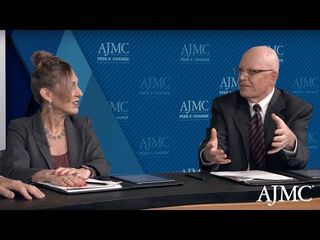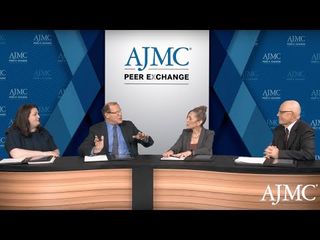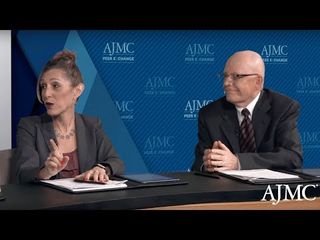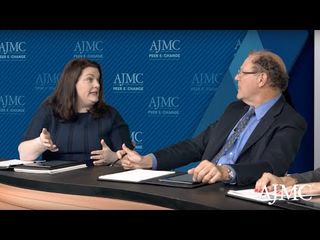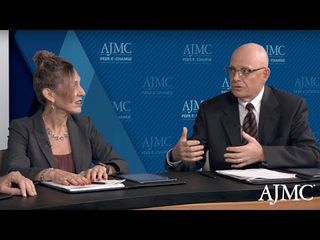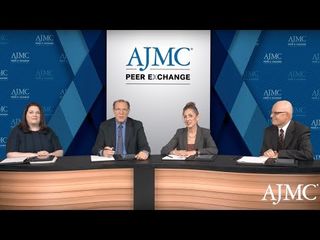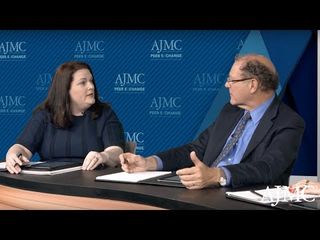
Policy
Latest News

Latest Videos

CME Content
More News

The use of Plan B fell by 60% in states that implemented near-total abortion bans after Roe v. Wade was overturned; the Biden administration will impose inflation penalties on 64 prescription drugs in the third quarter of 2024; the FDA recently released draft guidance to ensure that drug companies and medical device makers enroll more women and people of color in clinical trials.

On this episode of Managed Care Cast, we're talking with the author of a study published in the June 2024 issue of The American Journal of Managed Care® about how annual high-deductible insurance plans increase maternity care costs when pregnancies cross 2 calendar years.

In this fifth, and final, special bonus episode of our Pride Month series, we speak with Lauren Albrecht, director of advocacy and organizing, and Layla Orlando, director of health equity and wellness, at Garden State Equality, the largest lesbian, gay, bisexual, transgender, queer, plus advocacy organization in New Jersey.

What We’re Reading: Surging Global Dengue Cases; EHR Blocking Ban Finalized; Weight-Loss Drug Access
The CDC issued a warning to doctors on Tuesday to look out for dengue cases amid a global surge; HHS has finalized disincentives to prevent health care organizations from unreasonably blocking the exchange of electronic health record (EHR) information; patients in some states, like West Virginia, cannot afford weight-loss medications due to the high costs and lack of insurance coverage.

The National Comprehensive Cancer Network (NCCN) survey finds 89% of centers continue to report shortages for at least one type of systemic therapy.

In our fourth Pride Month podcast episode, we are speaking with Domenico Ruggerio, executive director of We Are Family, in Charleston, South Carolina, the state's oldest nonprofit to provide life-affirming and life-saving programs for lesbian, gay, bisexual, transgender, queer, plus (LGBTQ+) youth.

A federal appeals court has ruled a key part of the Affordable Care Act (ACA) unconstitutional, which allows a health task force to require insurers to cover preventive health measures without out-of-pocket costs; the FDA’s recent decision to authorize 4 menthol vaping products drew harsh criticism from pediatricians and antitobacco groups; rising health care prices are lowering American wages and causing job losses.

Health care spending avoided by increased hepatitis C treatment could more than offset direct spending on increased treatment, according to a new report from the Congressional Budget Office (CBO).

Change Healthcare will begin notifying individuals whose data may have been exposed when hackers disrupted the claims processing system; experts advocate for early diagnosis of gestational diabetes to mitigate risks for both mother and child; researchers worry that the slow rollout of bird flu tests may hinder outbreak detection and response.

Enthusiasm abounded at the recent European Hematology Association 2024 Congress about whether European regulators will begin to consider minimal residual disease (MRD) as an end point.

The rate of uninsured Americans will rise to 8.9% over the next decade; Senator Bernie Sanders (I, Vermont) wants a government watchdog to investigate why women are still being charged for contraception considered free under federal law, and proposed Medicare Advantage Star Ratings target top performers.

A Chinese study shows hypertension management led by nonphysicians can be safe and effective.

For the third episode in our special Pride Month series, we speak with Patrick McGovern, CEO of Callen-Lorde since August of 2023 and an outspoken advocate for HIV; lesbian, gay, bisexual, transgender, queer, plus (LGBTQ+); and community health.

Ageing with HIV comes with greater risks of other health complications; behavioral counseling programs for obesity are scare and often not covered by insurance; the surgeon general is calling for legislative action to protect youth when they interact with social media.

At a friendly debate held at the European Hematology Association 2024 Congress, hemophilia experts argued for and against wider access to gene therapy for patients living with the condition.

The arrests of the founders of Done Global, a telehealth company that provides attention-deficit/hyperactivity disorder (ADHD) medication to adults, for allegedly providing prescriptions to unqualified patients and defrauding the government have raised concerns about future access to these medications; US health care spending rose to $4.8 trillion in 2023; bipartisan legislation has been introduced to reform prior authorization with Medicare Advantage.
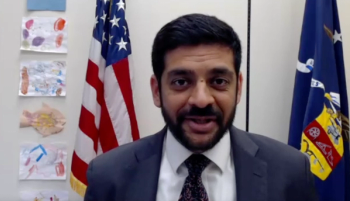
Ali Khawar, principal deputy assistant secretary with the Employee Benefits Security Administration (EBSA), US Department of Labor, explains how the Mental Health Parity and Addiction Equity Act (MHPAEA) aims to address the mental health crisis in the US.

The authors explore the economic impact and accessibility challenges of new Alzheimer disease drugs under the Inflation Reduction Act, with emphasis on Medicare, pricing, and health care equity.

FDA and the Department of Justice were criticized during a Senate hearing on the youth vaping crisis; a new COVID-19 vaccine promises easier storage and superior protection; the Supreme Court ruled to allow mifepristone to be mailed to patients without an in-person doctor’s visit.

Migvis Monduy, MD, medical director of Neuromuscular and Movement Disorders Programs at Nicklaus Children's Hospital, discussed challenges in Duchenne muscular dystrophy (DMD) treatment access and how policy changes may support patients with DMD.

New estimations show a historic increase in health spending last year, which is projected to account for 19.7% of the gross domestic product by 2032.

At a symposium on the impact of the Inflation Reduction Act (IRA) on pharmaceutical innovation and access, speakers urged the audience to join in advocating for changes to the law.

This study reports qualitative findings from an explanatory sequential mixed-methods investigation to understand hospitals’ approaches to a novel commercial episode-based reimbursement incentive program.

Judge rules Florida's ban on gender-affirming care for minors unconstitutional; first consensus definition for long COVID aims to standardize diagnosis and care; pilot program for clinical trial diversity discontinued due to high cost and lack of impact.

During the CMS Health Equity Conference, health care leaders shared groundbreaking strategies to integrate health equity into value-based care models, aiming to enhance patient outcomes and reduce costs.



